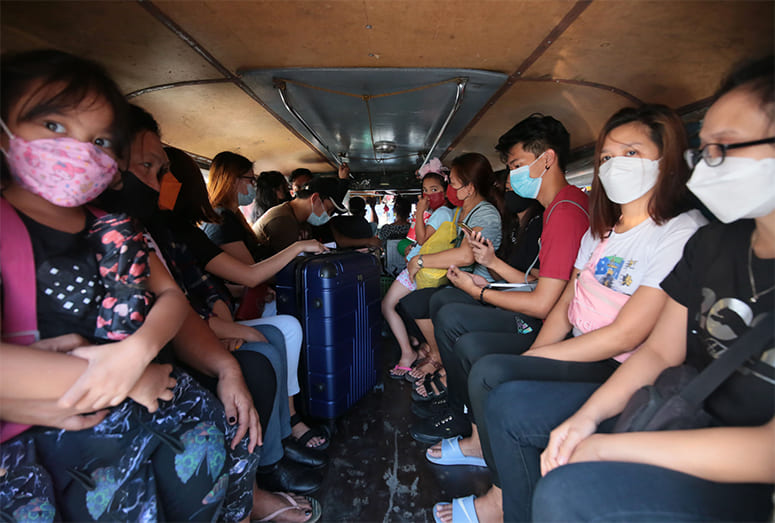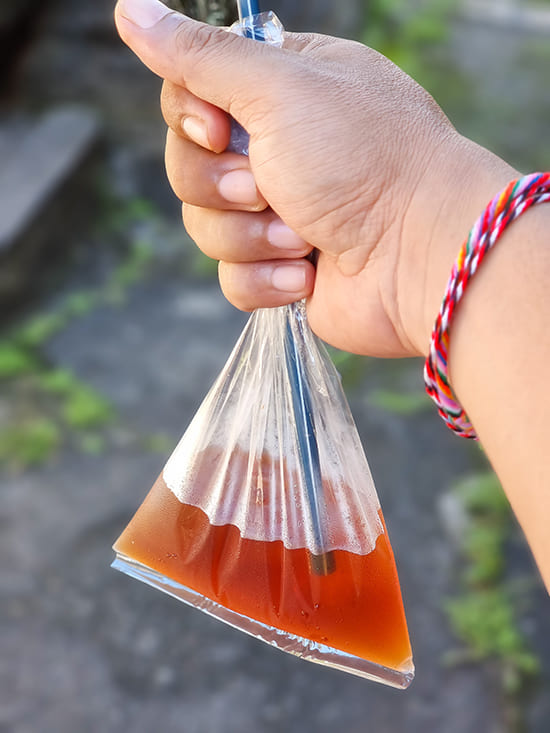Why don’t I see my own life on screen?
Are our experiences less valid if they don’t compare to what we see in films and books?
Red cups. Nightouts. Lockers. Have you used, experienced, and seen these in high school? Some have. But I sure didn’t. And for most of my teenage life, I thought there was something wrong with me. Turns out the issue lies in the media I consumed, not the life I got to live—the life that I apparently have missed out on living.
Looking back, I didn’t get to drink from red cups during parties thrown at one of my classmates’ houses. I could barely get out of the house after school.

Nor did I experience nightouts. Instead of blinding disco lights and blasting music, I had to contend with long commutes and bustling streets. I felt I was missing out. Contrary to the scenic bus rides where the main characters ponder life with music blasting in their headphones, I was barely sitting comfortably in a jeepney during rush hour. It was always a test of will and leg strength to prevent myself from slipping.
But one night, in that very jeep ride, I realized I wasn’t missing out. And no, I wasn’t blasting music in my ears and staring at the window. Firstly, because you can’t lean on jeepney windows. And secondly, you might get robbed.
When you grow up on Western movies and books, you start to think there’s something dull about your own coming of age. But that is never the case.
Regardless, it’s in the jeepney that I realized it’s the accessibility of Western media—and our exposure to it—that made teenage life look sparkly and enticing, contrary to mine. The books and films we consume tend to echo this life. And it makes ours look dull just because it’s different.
Sure, we don’t always get a driver’s license when we turn 18 or receive a secondhand car from our parents as a birthday gift. Filipinos even find it difficult to account for fares. But it’s in the jeepneys that we find and have built the culture that was shaped by us and, in turn, has made us who we are today.

Like how people make space near the entryway of the jeepney when an elderly passenger hops in. Or when other passengers yell “para!” when the driver can’t hear the person who said it first. Or when we peek through people’s phones to see what games they’re playing to ease the traffic boredom.
It’s these things that make up our own culture. A tradition made from us, that carries us. And it’s these that we overlook because our benchmarks of the ideal teenage experience are red cups, nightouts, and lockers. Little do we know these are simply its counterparts.
It took a whole lot of being consumed by these Western media representations before I began to question the standards I held for my teenage self. I realized, way too late, that I missed living my teen years fully. That I was unfair, not just to myself for feeling insufficient, but also to my parents and guardians.
I grew resentful towards them because they were not like the parents I saw in the movies. Why couldn’t 15-year-old me go to the city alone when the 13-year-olds in films and books already drink and have tattoos? How could these fictional 18-year-olds move out and live independently when the 18-year-old me had never slept over at anyone else’s house?
I became a cranky teenager because I felt caged. I resented my family because I didn’t realize they were only scared I’d trip and not know how to get back up. I put myself in an echo chamber where Western media were on the pedestal, and my family were the villains. But this energy should’ve been directed to the media I consume.

This is not to say that Western media is awful. After all, it portrays their own teenage realities. But just because their experience is a certain way doesn’t mean ours should be, too. Not getting to experience what our favorite character experiences doesn’t make ours less valid.
I might not have experienced drinking liquor from red cups, but I experienced drinking sodas in plastic ice bags with straws to share with my friends. I might not have slept over at my friend’s house, but I do have my fair share of field trips my parents allowed me to go to, where I made memories just as worth keeping. And I might not have had a scenic moment on a bus when I’m sad, but I’ve paid for a stranger’s fare when they didn’t have any change.
It brings me back to the introspection I’ve had in my jeepney rides. It’s not the glamour that makes up our teenage life and makes it worth remembering. It’s the silent bonds we built and the community we share, no matter which jeepney we hop on to.

There wasn’t anything wrong with me. And there isn’t anything wrong with those films and TV shows, either. The “wrong” lies in how I expected myself to live up to them. I consumed these media forms, but I also let them consume me and how I perceived life. But how could a teenager know better?
Perhaps this shouldn’t be the end of mourning the teenage life I wish I had lived. Instead, it’s the beginning of a call for spaces where Filipino teens can echo their stories. Amplify local independent filmmakers. Detach from the idea of seeming Western to be “cool” or accomplished. Maybe then, fewer would feel like we’re doing life wrong just because ours looks different.


